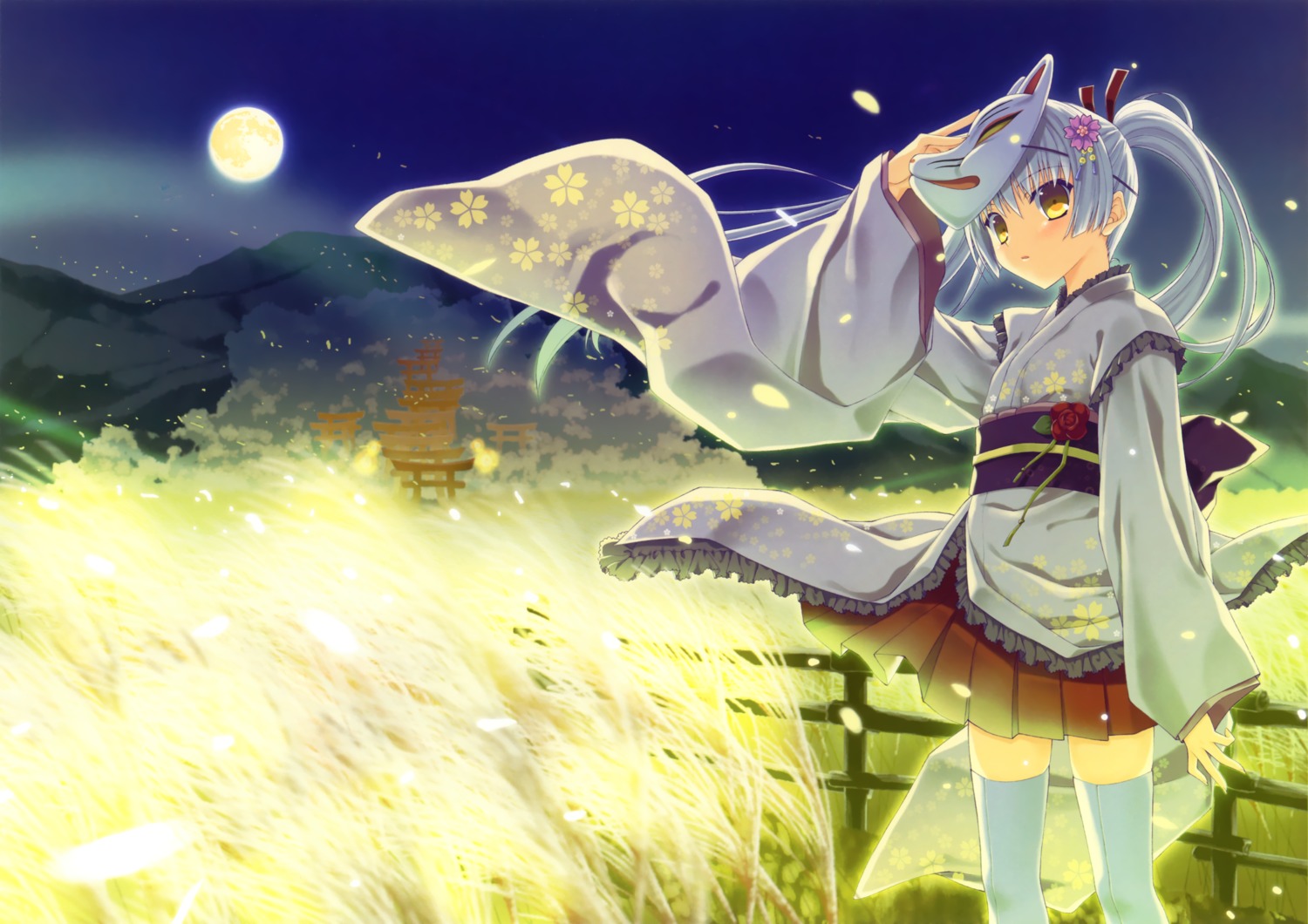« Previous Next » This post is #68 in the Eshi 100-Nin Ten 03 pool.
七尾奈留
Naru Nanao
黄昏の芒
Tasogare no susuki (Susuki Grass in the Twilight)
「絵師100人展」では前回、前々回と春、夏の絵を描いてきたので、今回は秋にしたいと思い、曰が暮れた後に月明かりに照らされて、朧げに浮かび上がるススキ野原の中に佇む白い狐さんをイメージしてみました。前2作は曰常の風景的な感じだったので、今回は幻想的な雰囲気にできればなぁと。
タイ卜ルは与謝蕪村という江戸時代の俳人さんの
「山は暮れて野は黄昏の芒かな」
という秋の句からいただきました。
The subject of my picture for the last ‘Eshi 100’ was set in summer and the one before that was spring so this time I decided to use autumn. It is based on the image of a white fox, lingering on a plain covered with susuki grass, dimly illuminated by the moon after the sun has gone down. The last two works were of everyday scenes so this time I thought I would try something more fantastic.
The title has been borrowed from the haiku poem by the Edo period poet, YOSA Buson: ‘Darkness gathers on the mountains, while twilight covers the susuki of the plains’,
Naru Nanao
黄昏の芒
Tasogare no susuki (Susuki Grass in the Twilight)
「絵師100人展」では前回、前々回と春、夏の絵を描いてきたので、今回は秋にしたいと思い、曰が暮れた後に月明かりに照らされて、朧げに浮かび上がるススキ野原の中に佇む白い狐さんをイメージしてみました。前2作は曰常の風景的な感じだったので、今回は幻想的な雰囲気にできればなぁと。
タイ卜ルは与謝蕪村という江戸時代の俳人さんの
「山は暮れて野は黄昏の芒かな」
という秋の句からいただきました。
The subject of my picture for the last ‘Eshi 100’ was set in summer and the one before that was spring so this time I decided to use autumn. It is based on the image of a white fox, lingering on a plain covered with susuki grass, dimly illuminated by the moon after the sun has gone down. The last two works were of everyday scenes so this time I thought I would try something more fantastic.
The title has been borrowed from the haiku poem by the Edo period poet, YOSA Buson: ‘Darkness gathers on the mountains, while twilight covers the susuki of the plains’,

